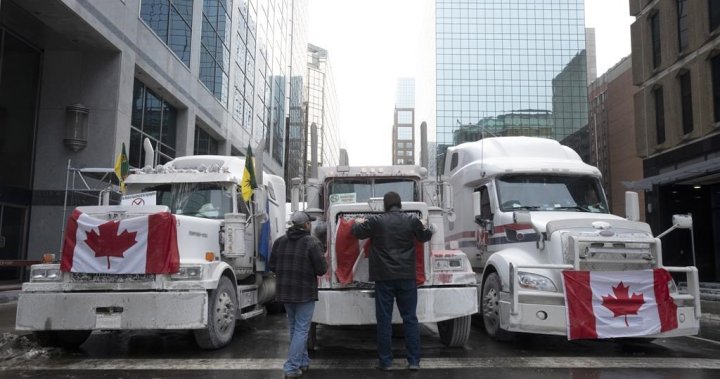
Trucker convoy: What options do police have amid ‘illegal,’ ‘unlawful’ conduct?
Global News
Prime Minister Justin Trudeau was one of the first officials to shimmy up to the shift, telling Canadians on Wednesday afternoon that the demonstration is 'becoming illegal.'
Listen carefully, and beneath the blaring horns of the so-called “Freedom Convoy” downtown Ottawa, you hear it — shifting language that the protest is becoming “unlawful.”
Prime Minister Justin Trudeau was one of the first officials to shimmy up to the shift, telling Canadians watching question period on Wednesday afternoon that the demonstration is “becoming illegal.”
Diane Deans, currently running for the mayorship of Ottawa and chair of the city’s police services board, described the people still blockading and roaming the streets as “mercenaries that are unlawfully protesting and occupying our communities.”
Chief Peter Sloly of the Ottawa Police Service also referenced “unlawful” activities by some. Municipal councillors have repeatedly described the protest as an “occupation” and “siege” of the city.
Protesting in Canada is a constitutional right. But there is a caveat: the protest in question must be a “peaceful assembly” in order to be legal.
That legal protection, according to the Department of Justice website, “does not protect riots and gatherings that seriously disturb the peace.”
The Criminal Code specifically defines an unlawful assembly as:
An unlawful assembly is an assembly of three or more persons who, with intent to carry out any common purpose, assemble in such a manner or so conduct themselves when they are assembled as to cause persons in the neighbourhood of the assembly to fear, on reasonable grounds, that they
